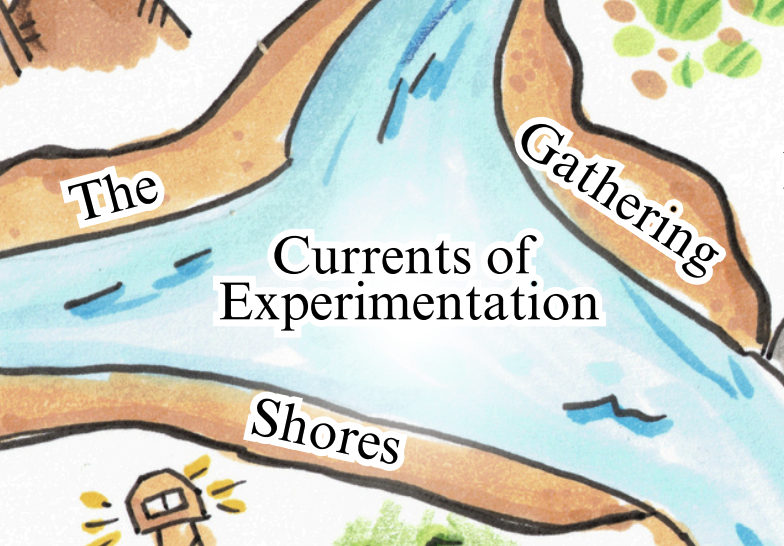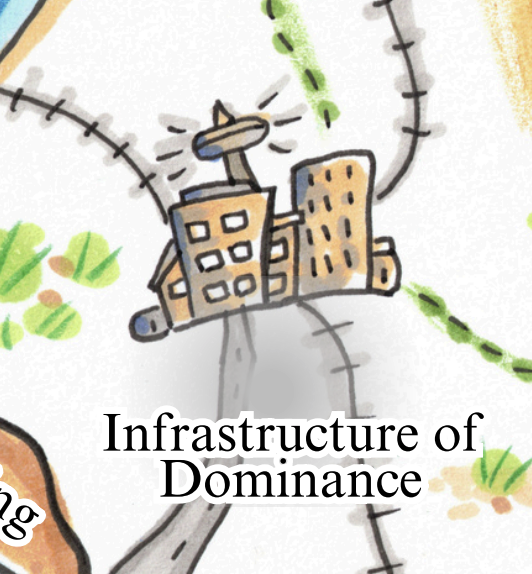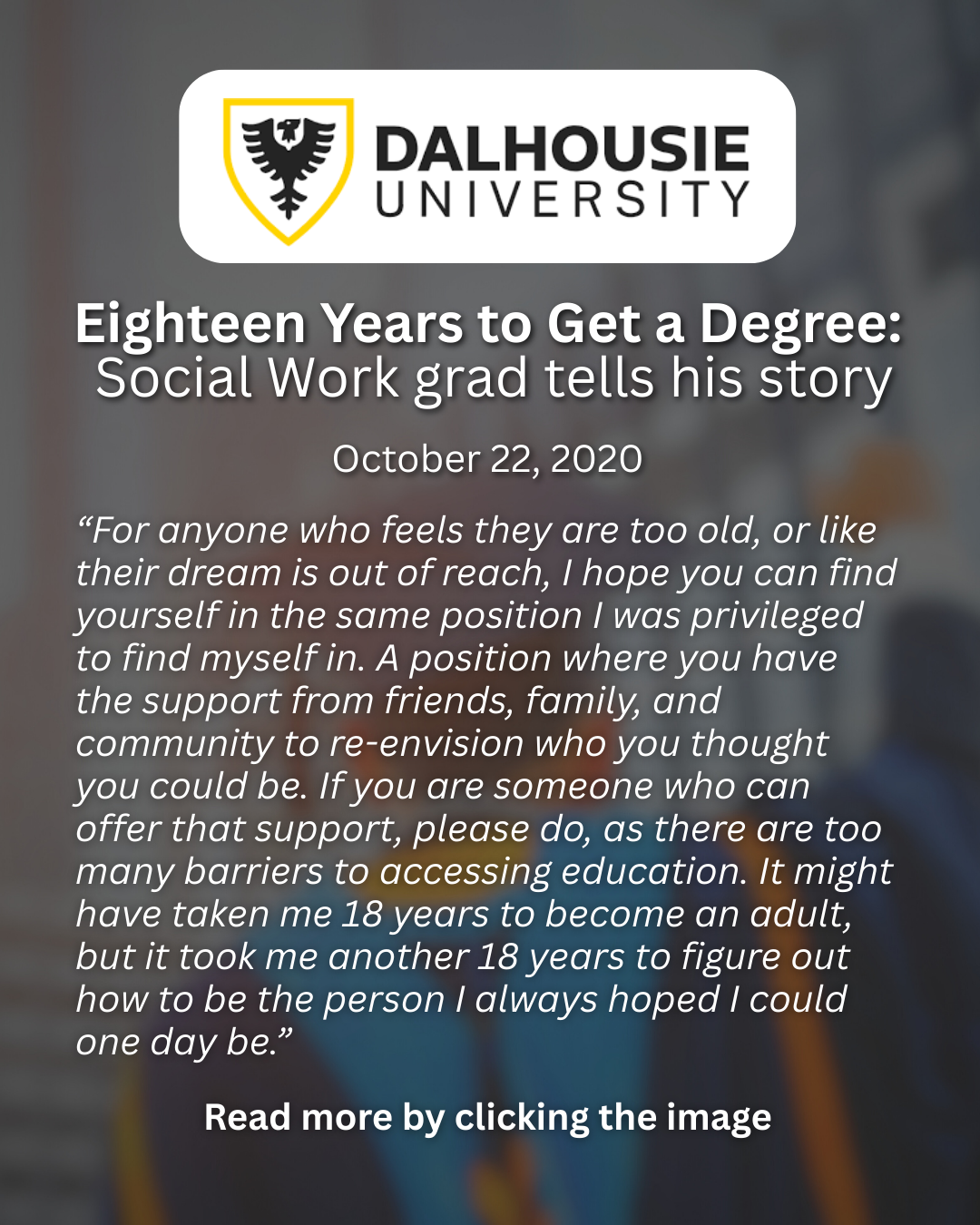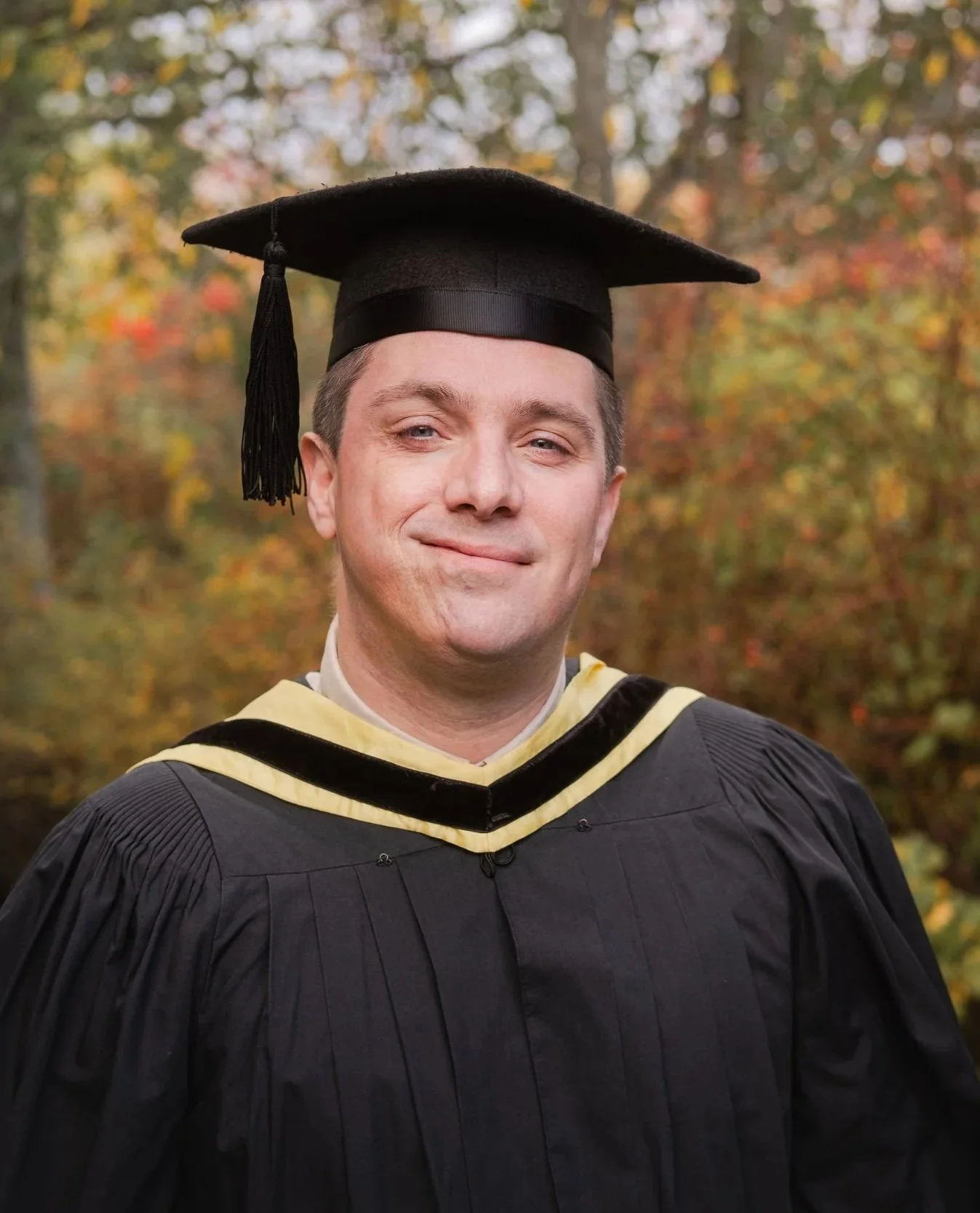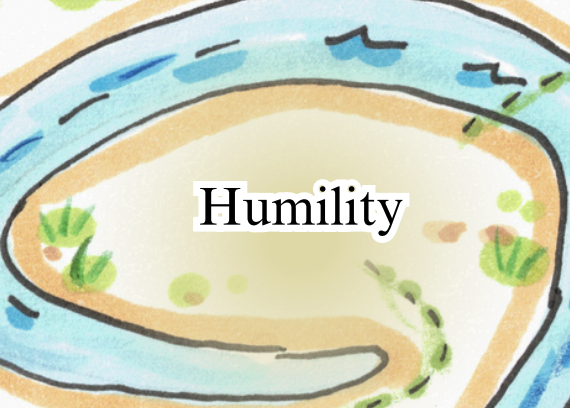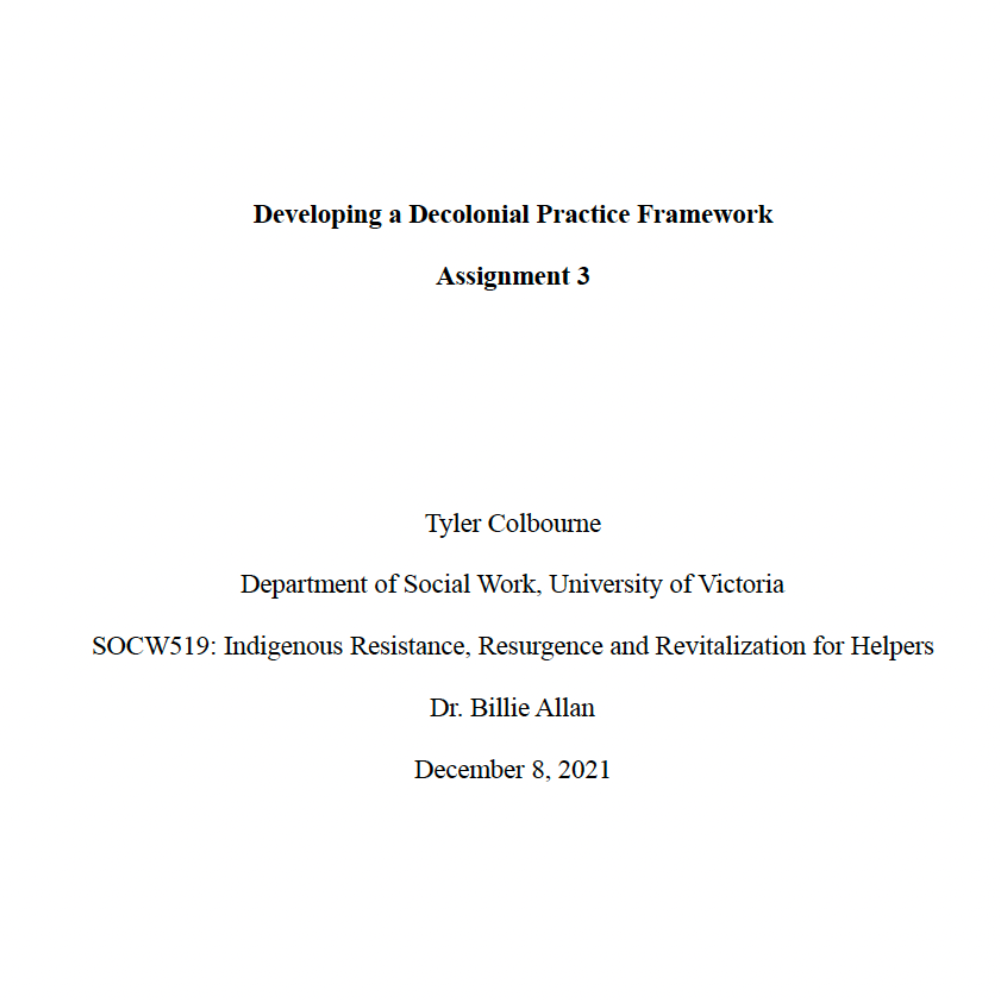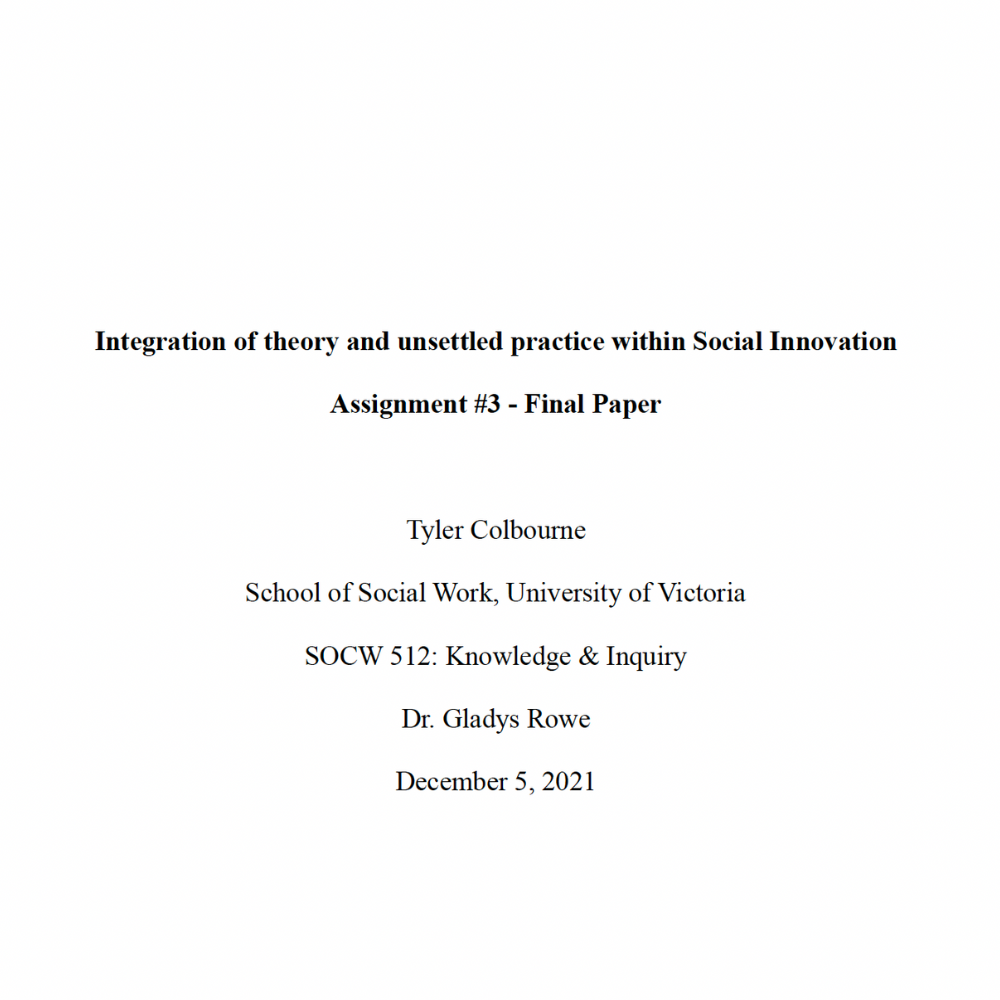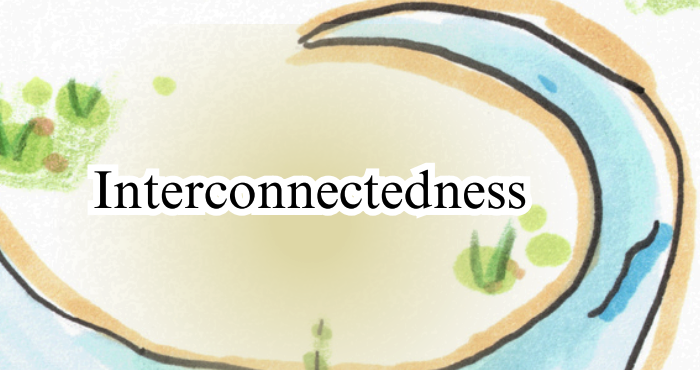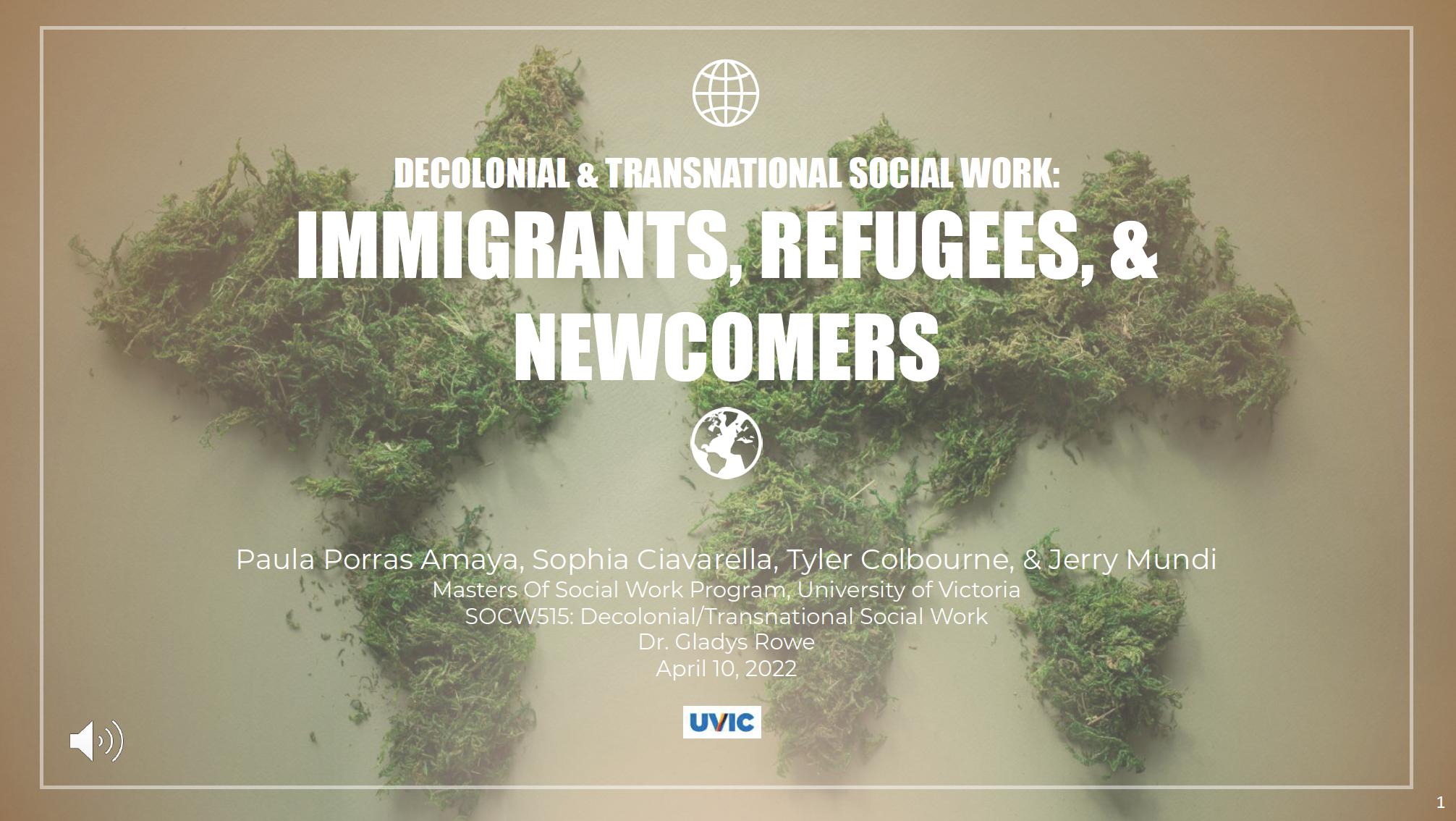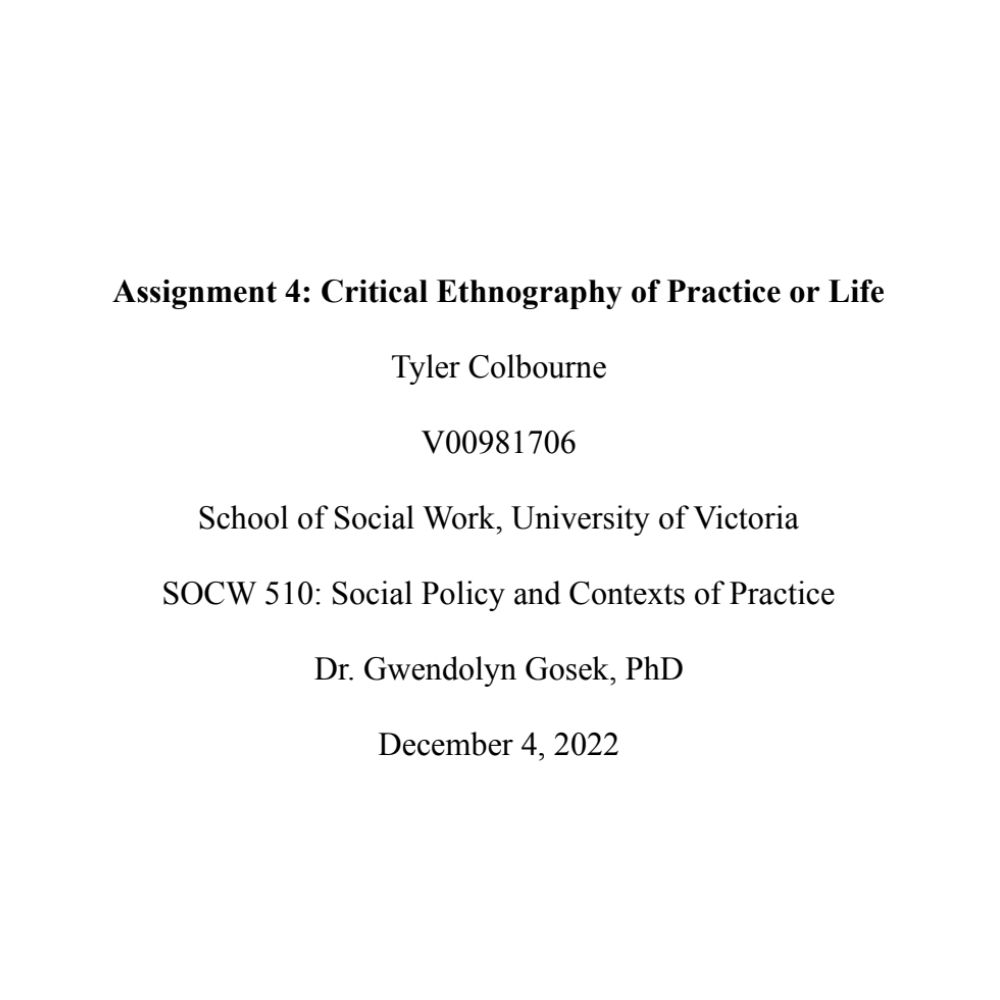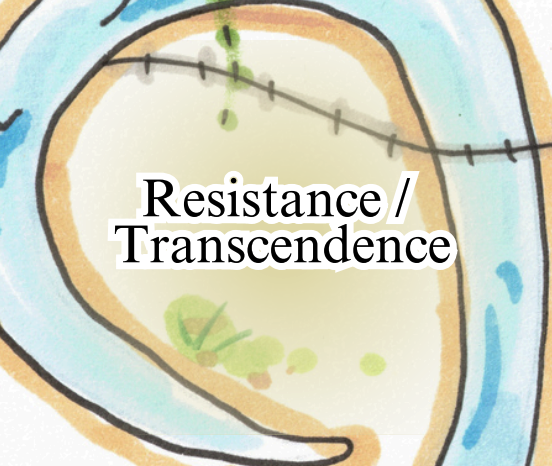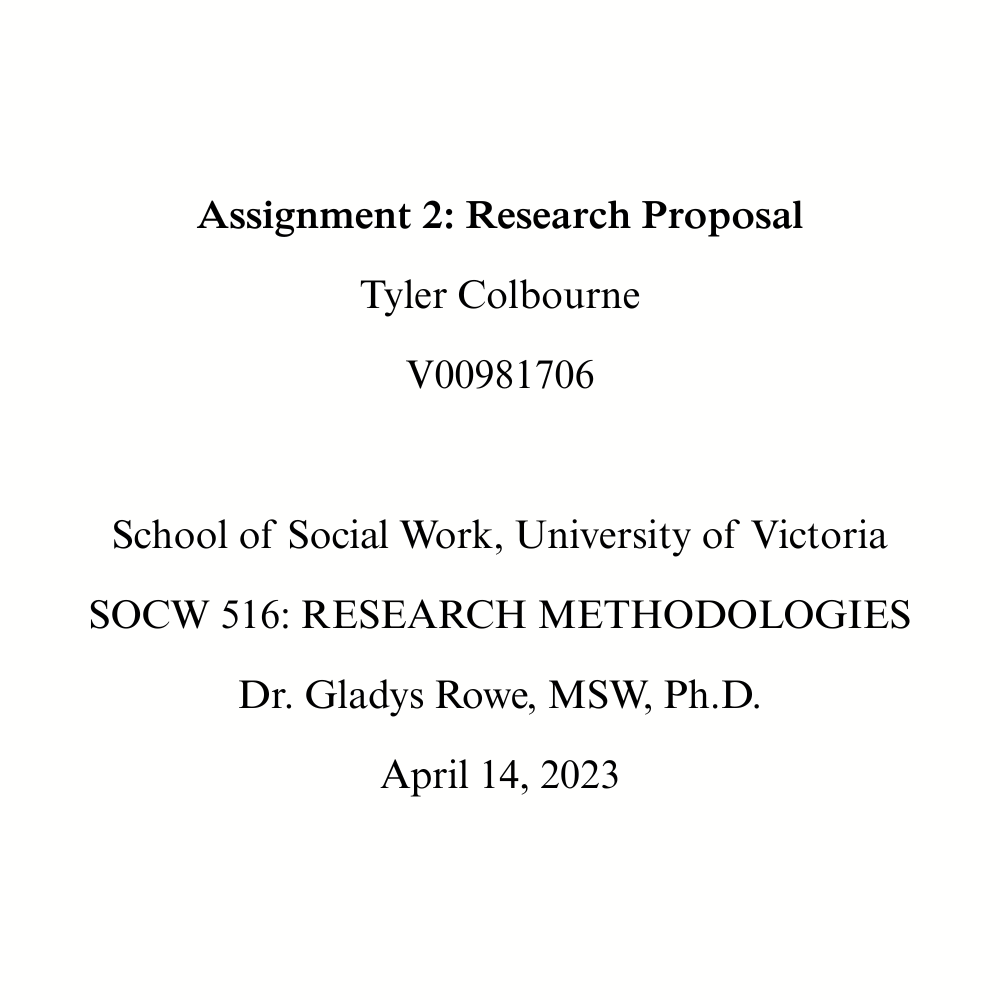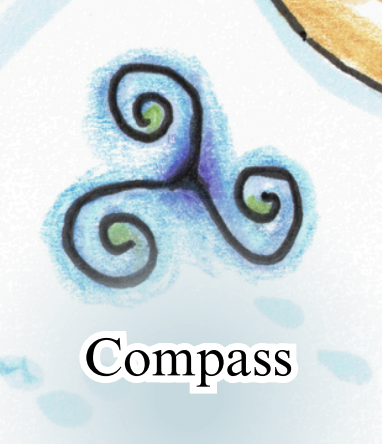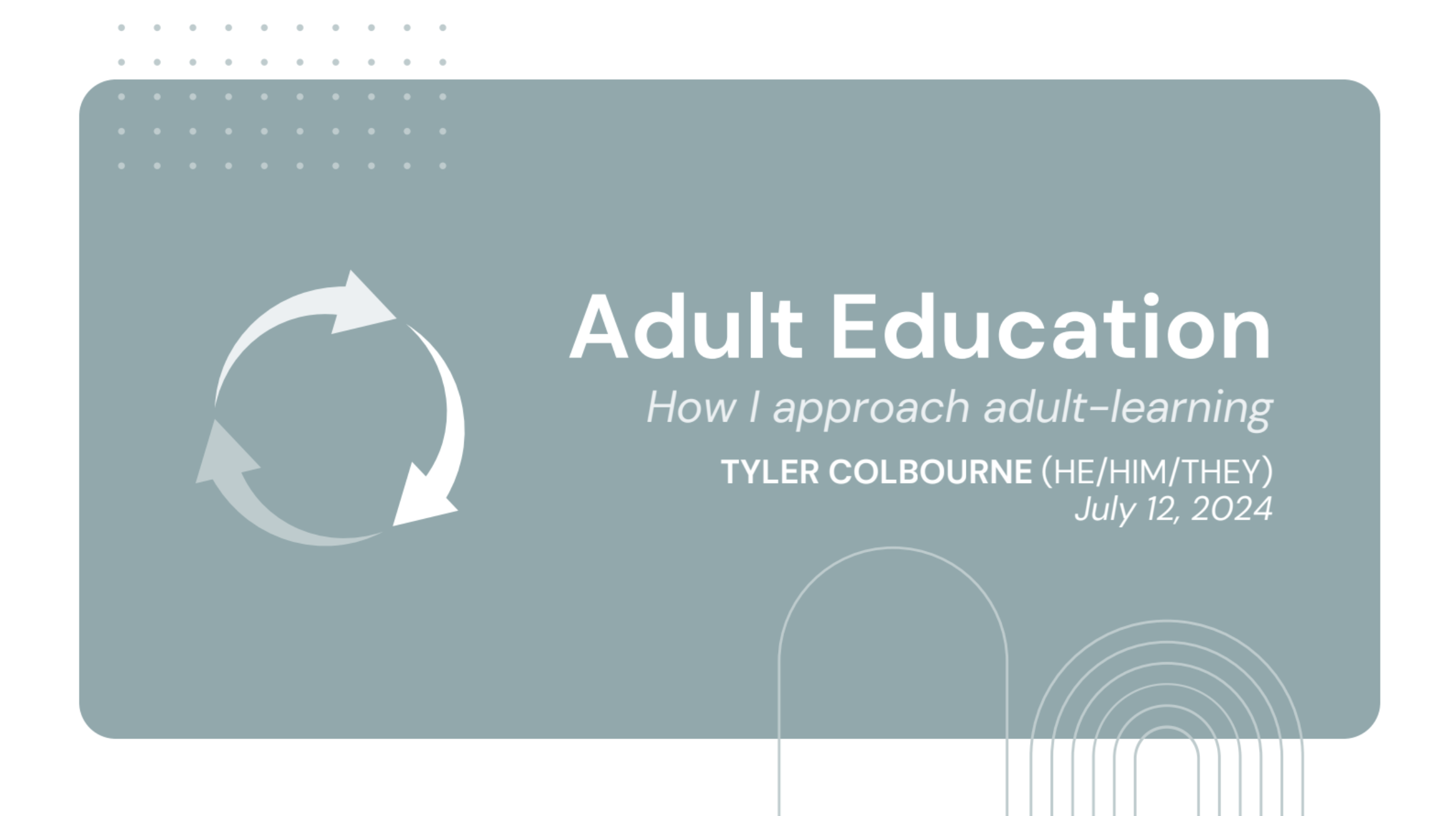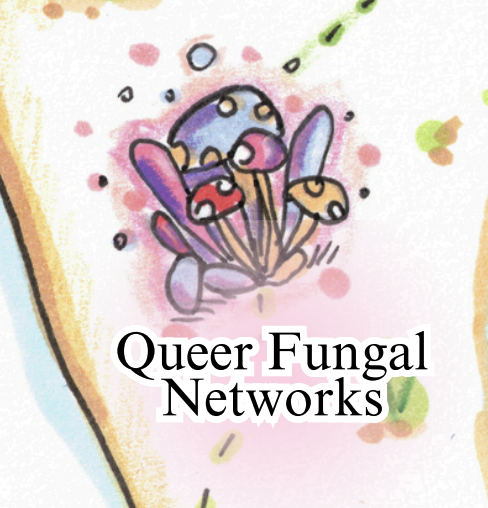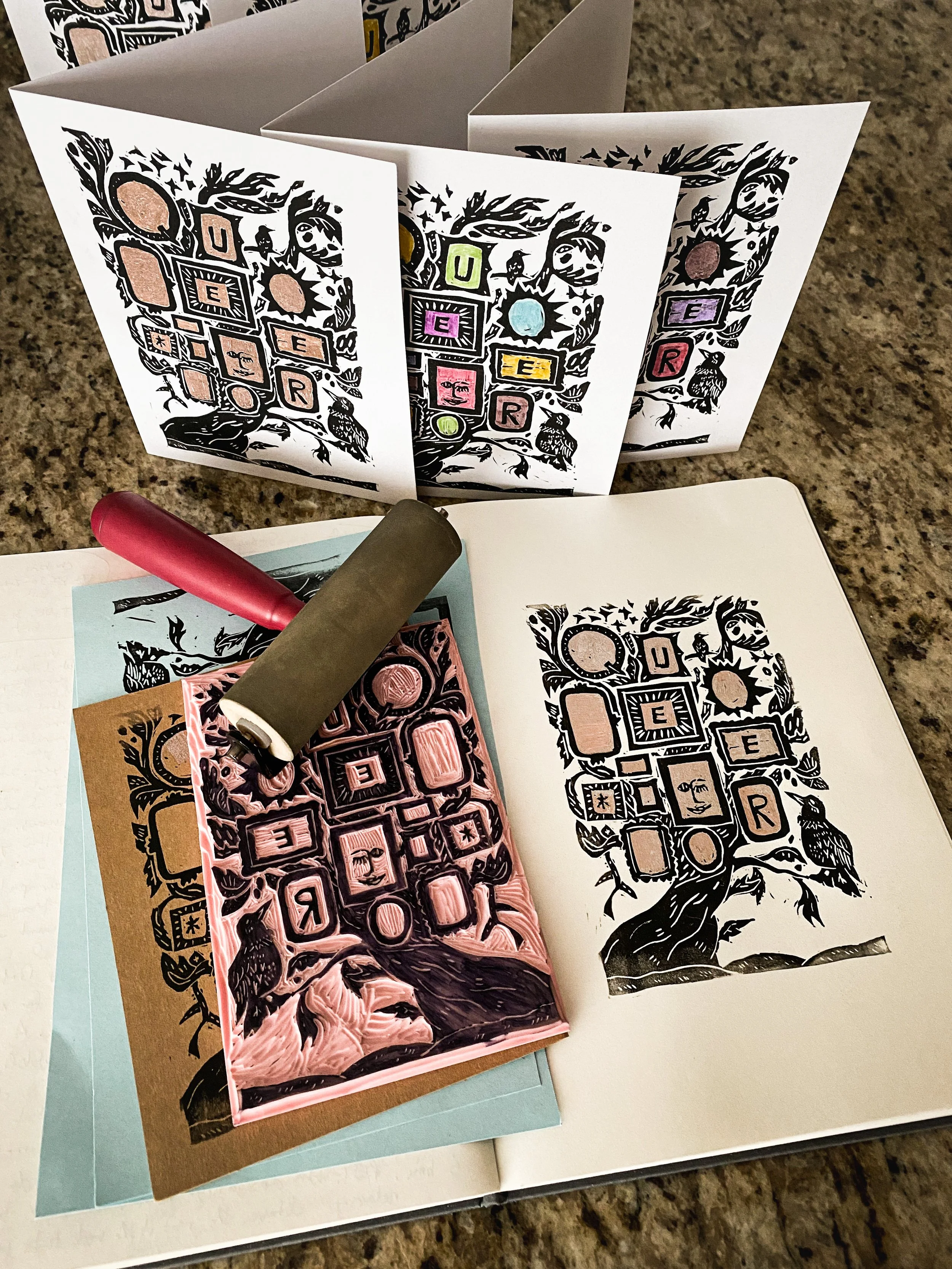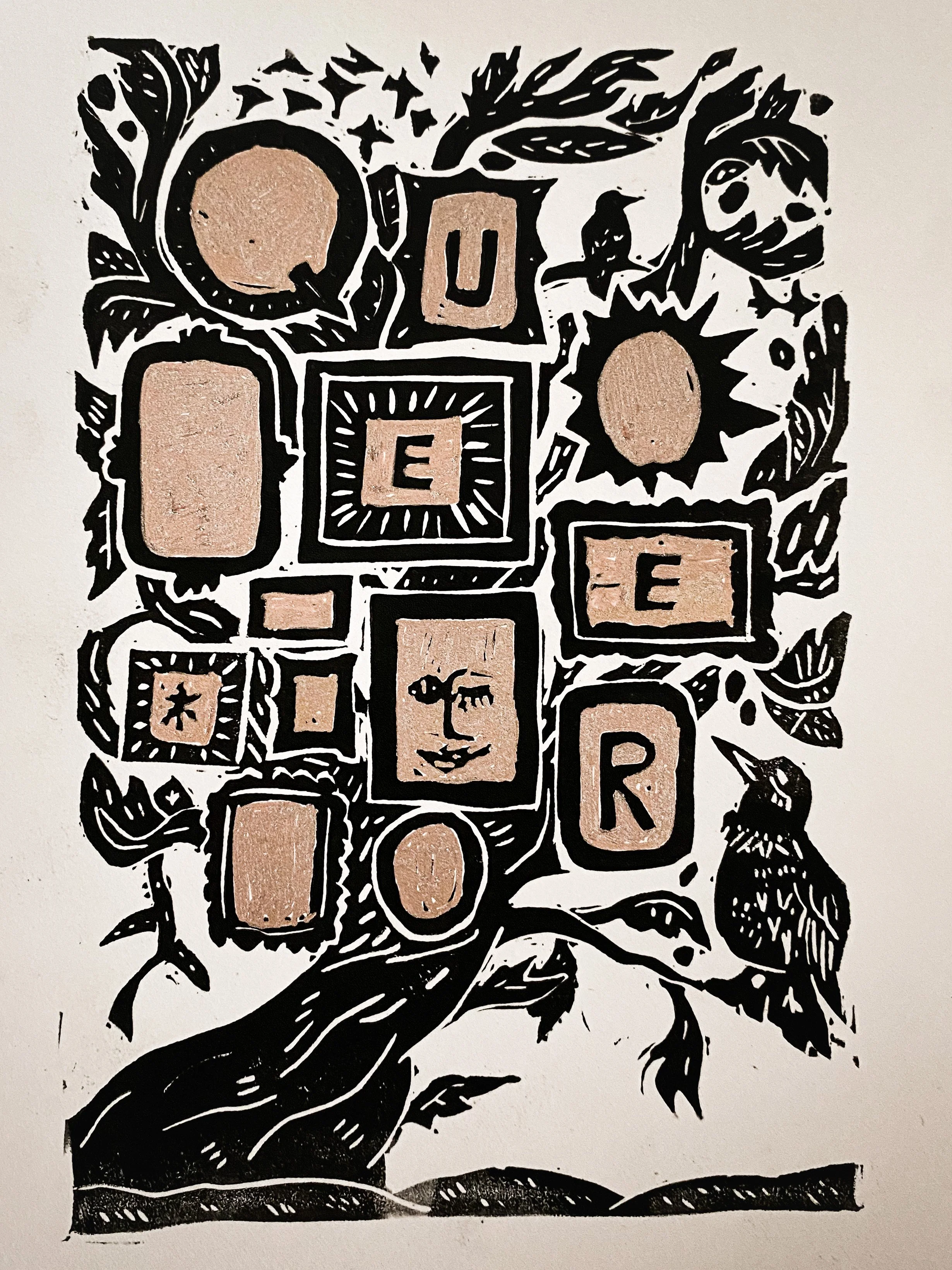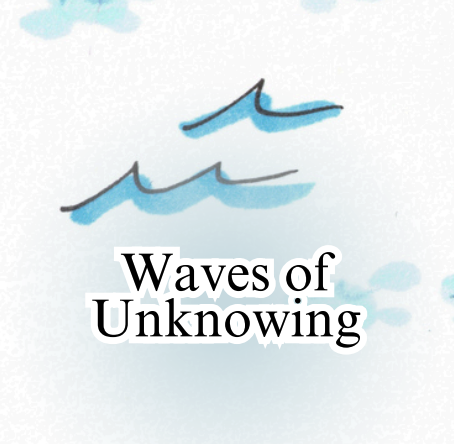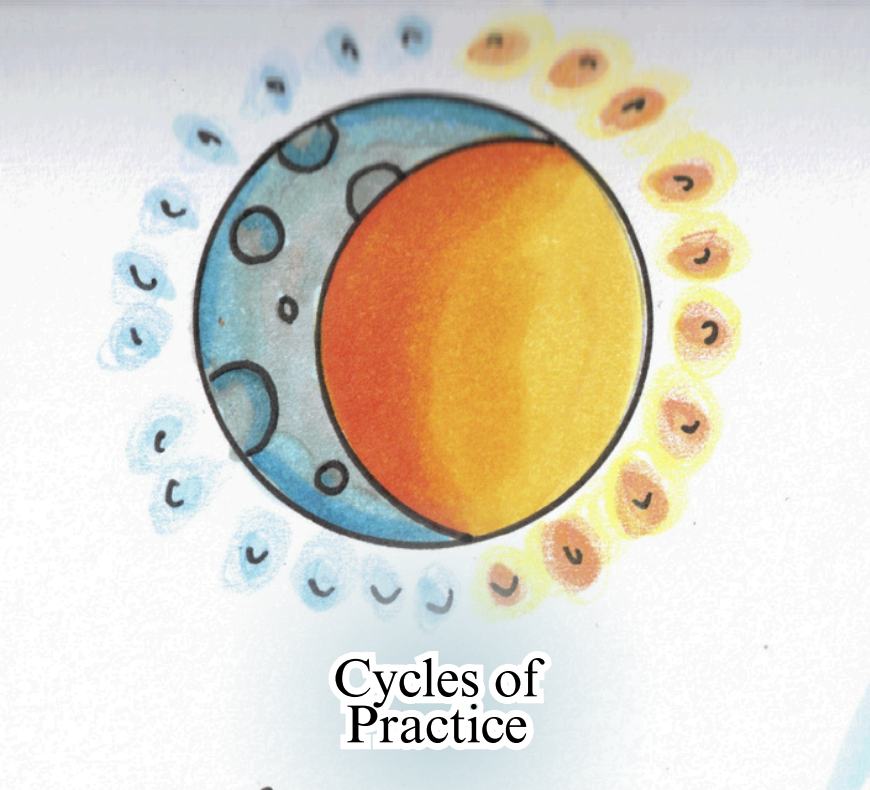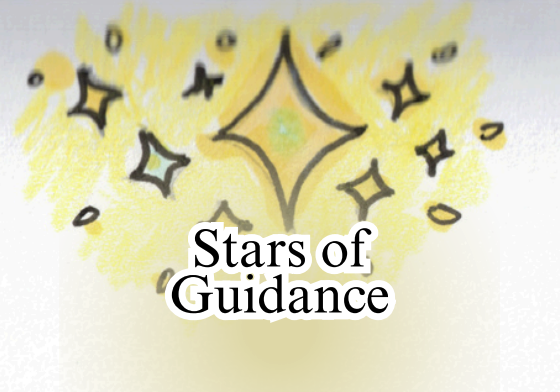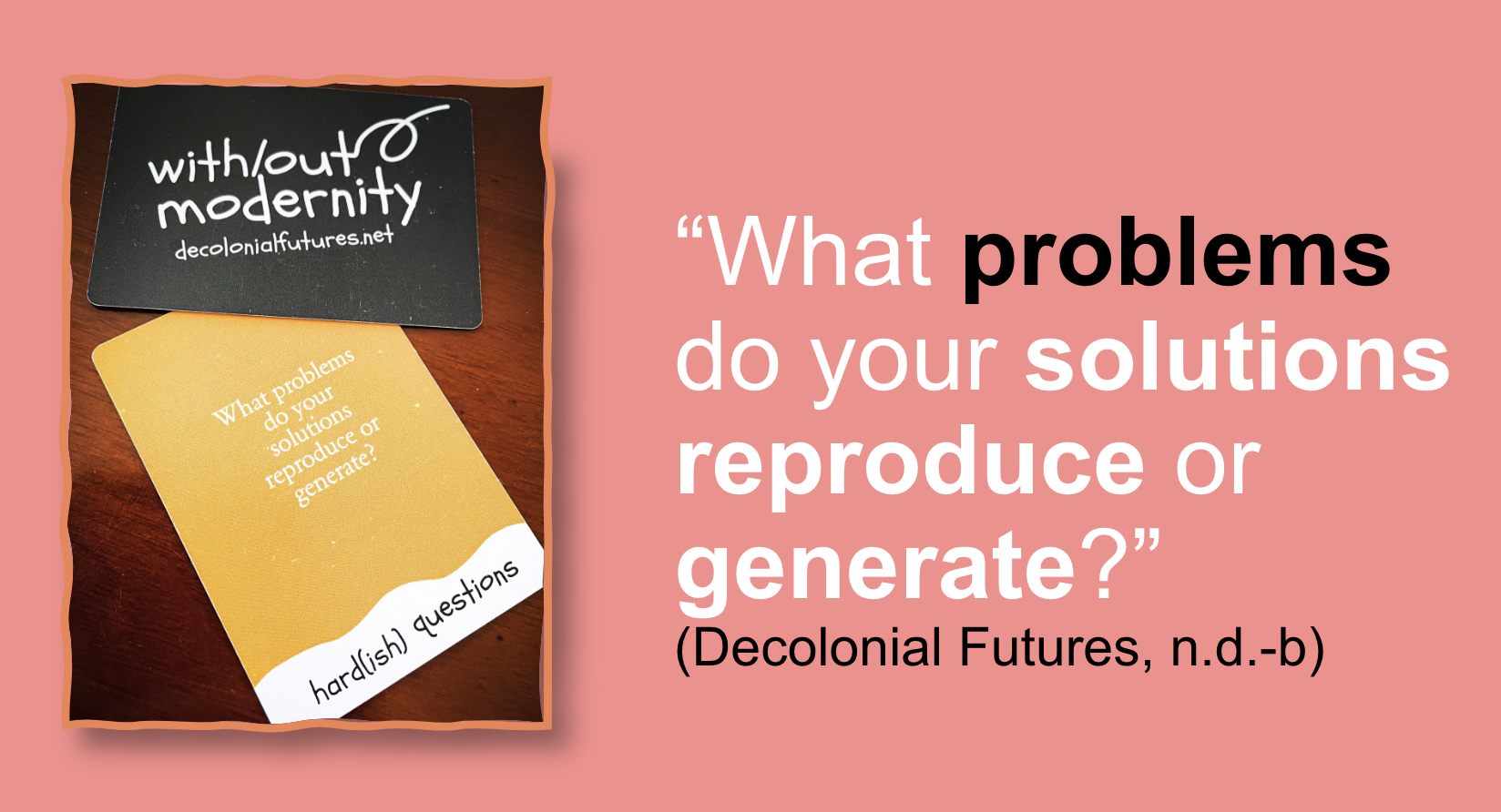Cartography of Learning
My E-Portfolio outlines my Cartography of Learning, highlighting the development of my knowledge, skills, and values gifted to me through my practice and learning experience as a student in the Masters of Social Work Program at the University of Victoria. The e-Portfolio outlines my positionality, my career (so far), lessons from this program, my philosophical approach (the lenses I use) as a social worker, my strengths, where I believe I fit within the social work profession, how my queerness intersects with practice, and my aspirations for future practice. I have illustrated my Cartography of Learning as a tool to help make visible my reflections and learnings while engaging in creative practice. The video below further introduces my e-Portfolio and my Cartography of Learning.
My Career (So Far)
I have had a diverse career.
Up to this point, I have had over fifty jobs in positions such as flight attendant, bartender, youth outreach work, empowerment officer, communications manager, deckhand on a pirate themed sailing vessel, education program officer, communications manager, marketing coordinator, executive director, and photographer. I feel I am privileged to have already lived an interesting and dynamic life. Like in the Cartography of Learning, my career so far has been a journey. I roamed a lot prior to coming to social work, not really knowing where I fit or what I should do or become.
I tried school more than a few times. I graduated with a diploma in ecotourism after two difficult years at the Nova Scotia Community College where I almost dropped out halfway. Before that I did two years at Acadia university, trying biology, but struggling immensely. Following that experience, I dropped out and went on a youth exchange with Canada World Youth to St-Anselme, Quebec and Yako, Burkina Faso. After Canada World Youth, I had three other attempts at University. However, it wasn't until 2016 that I considered that maybe I could become a social worker. Then, after 18 years of trying I successfully graduated from the Bachelor of Social Work Program at Dalhousie University in 2020. I am now a registered social worker, licence #8635 with the Nova Scotia College of Social Workers.
Figure 1. The Currents of Experimentation and The Gathering Shores from the Cartography of Learning.
Figure 2. The Infrastructure of Dominance from the Cartography of Learning.
Photo: 2004, by Tyler Colbourne in Yako, Burkina Faso. This photo represents me at the beginning of my learning journey in the helping and social sectors.
I share my diverse work and educational experiences because I feel they reflect the many ways I have wandered and explored my identities, interests, and passions. While I am a social worker, I am so much more! When viewing the Cartography of Learning there are few areas on the map connected to my career and journey so far. Firstly, I was first introduced to the idea of experiential learning through Canada World Youth. I would say it was where and when I first dipped my toes into the Currents of Experimentation. Like complex and moving waterways, this point of the map is ever changing, always swirling resources and ideas around, and providing elements to other areas of the map, such as the The Gathering Shores. Each of these shores reflect times and spaces in my learning journey where I was both on land and in the currents, learning and engaging, and integrating knowledge from the currents and resources flows around me. Canada World Youth opened me up to new ways of knowing and being and fundamentally altered my worldview. Through this experience, I began to question the Infrastructure of Dominance.
I grew up in a military family where many people did not complete their high school education and the military was considered your best shot for a life. I almost joined the military twice, but found myself yearning for something different. I am also a product of many influences of settler colonialism, white supremacy, capitalism, and neoliberalism. I see these forces reflected in the Infrastructure of Dominance. The built structures inside me and around me that uphold dominant ways of knowing and being are reflected on the map here in the roads, tracks, and buildings. I see the dominance of my white settler identity as being reflected in the Infrastructure of Dominance. I am complicit in settler colonialism, but it is also something that I resist and seek to dismantle. But it is there, all around me, sometimes existing as its own gathering places, or as pathways and journeys between destinations in my learning journey. The Infrastructure of Dominance is not just a place on the map, but roadways and journeys across the map that intersect and interact with other areas. It reflects both barriers and opportunities for learning. I can walk and travel on this infrastructure, but I have to recognize that these structures do not belong to the land, but have been built on top of it. Much like the dominant forces and ways of knowing and being that construct the world around me, the Infrastructure of Dominance is ever present.
It wasn't until I did Canada World Youth in 2004 that I began to question the world around and the Infrastructure of Dominance. For me, it feels as though I was given the opportunity to experiment and learn in a new container that wasn't formal education (Currents of Experimentation). It is important to note that while I was given this opportunity, Canada World Youth was a program that upheld many dominant colonial beliefs about international development, charity, and education. While this experience radically changed my worldview and led me to become who I am today, it was also an experience rooted in neocolonialism and oppressive forces of volunteer tourism. Yet, it is a time that has given me lessons many times.
The Currents of Experimentation are inside the boundaries of the land map, but are interconnected to the space around it. My first journey there was through Canada World Youth, and I am grateful for that experience. Many years later I find myself journeying towards these currents in different vessels and for different purposes. I have included a photo of myself from twenty years ago in the Canada World Youth program in Burkina Faso as an artefact. When I look at this photo I see a young man, uncertain about education and his next steps, prior to his many years of roaming and experimenting, but also a person who is beginning to develop a critical lens and desires for a better world. He was at the beginning of his journey.
I am also including two artefacts that highlight my journey of academic learning and becoming a social worker. The first is an article I wrote, Eighteen Years to Get a Degree (Colbourne, 2020), which gives thanks and recognition to the journey of education and the relations that supported me. It took me many years to complete my undergrad and it was the contributions and support of many others which allowed me to succeed. This article originally appeared in a print community newspaper that I occasionally write for called the Dartmouth Echo. I also have included my registration certificate with the Nova Scotia College of Social Workers where I am a member and a Registered Social Worker.
Photo: License & Registration with the Nova Scotia College of Social Workers.
Lessons from my MSW with UVIC
Photo: 2024, November 13, at my convocation at the University of Victory.
When I applied to the Master of Social Work program at the University of Victoria, I had only begun learning about the concepts of decolonization through the work of Decolonial Futures (n.d.-a) and the work of Jimmy & Andreotti in Towards Braiding (2019). The exposure to these works is in large part the reason I applied to this program and school. I was grateful to finally have completed my degree and obtained a Bachelor of Social Work, but I was curious about and committed to learning more. I wanted to deepen my learning about my responsibility as a settler Canadian and how this intersects with my accountabilities as a social worker. While this program has offered me many lessons, when reflecting on what I wanted to share with viewers of this e-portfolio, three themes emerged. This program has given me deeper understanding, knowledge, skills, and values related to Humility, Interconnectedness, and Resistance/Transcendence.
Each of these areas are found on the Cartography of Learning as distinct areas found within the spirals of the rivers on the map. Each location is not just a space on the map, but an element that is entangled with the other elements of the learning journey, representing destinations but also influences on the cartography as a whole. The lessons of this program were developed throughout courses focused on ethics, Indigenous resistance and resurgence, knowledge & inquiry, transnational social work, decolonizing research, policy, and my field practicum placement.
Figure 3. Humility from the Cartography of Learning.
Humility is the first location on my cartography of learning reflecting the lessons gained from my MSW, representing the learning and unlearning this program has provided me. As a settler Canadian I felt grateful to be accepted into this program, but my first few weeks were filled with insecurity and fear. Early on in my MSW program, I started a course in Indigenous Resistance, Resurgence, & Revitalization taught by Dr. Billie Allen. The first paper I submitted in this class barely got a passing grade. In fact, I accidentally plagiarized by representing two concepts without proper citation. Dr. Allen provided me with generous and thoughtful feedback and it was a humbling experience. The lesson of humility was reaffirmed throughout the course and I am proud to include my final assignment from that course. This artefact demonstrates my Decolonial Practice Framework. It highlights learning through the use of a composting analogy where I seek to compost elements of my settler identity and the changes I have gone through in that course. reflect on and communicate the importance of being grounded in humility in my practice as this "challenges the power construct of the current academic research model" (Bear, 2014, p. 228), that underlines colonial dominance social work education and practice.
Humility was further reinforced through my coursework in Knowledge & Inquiry. For this e-portfolio I offer as an artefact my final paper in this course, Integration of theory and unsettled practice within Social Innovation. In this paper I ask many questions in my attempt to unsettle and integrate lessons from my previous working experience in social innovation. I look to scholars like Aluli-Meyer (2013) and Absolon (2011) who helped me to challenge my understanding of knowledge and see beyond colonial epistemological frameworks.
Artefact: Developing a Decolonial Practice Framework
December 8, 2021, by Tyler Colbourne: Developing a Decolonial Practice Framework, Department of Social Work, University of Victoria. SOCw519: Indigenous Resistance, Resurgence and Revitalization for Helpers. This paper outlines my personal decolonial practice framework developed through my learning and reflection in this course.
Artefact: Integration of theory and unsettled practice within Social Innovation
December 5, 2021 by Tyler Colbourne: Integration of theory and unsettled practice within Social Innovation: Assignment #3 - Final Paper. This paper outlines my reflections and critical decolonial analysis of my practice context in the area of social innovation.
Figure 4. Interconnectedness from the Cartography of Learning.
Interconnectedness is further explored and lessons are demonstrated through the artefact, Beyond the Binary: A Case for Resistance. This is a group assignment exported as a pdf from the Ethics course in the MSW program. Within this project we created a persona of a woman named Phoebe who is experiencing multiple levels of oppression and is in need of social work interventions across multiple dimensions. We explore interconnecting issues of oppression and offer potential solutions from multiple theoretical ethical viewpoints that are interconnected (Schmidt, 2022; Weinberg & Banks, 2019) and strive to move beyond colonial frameworks (Absolon, 2016). I am further guided by the Interconnectedness in ethical practice by lessons from Africentric ways of knowing and being such as Ubuntu. Ubuntu reinforced the idea that we become more of who we are through being in relationship with others in our everyday practice and it rejects the ideas of silos and borders (Mugumbate et al, 2023; Twikirize, 2023). Ubuntu is a collectivist and Indigenous way of knowing and being I carry forward with me into my practice.
I have also included an artefact of my final assignment, A Critical Ethnography of Practice or Life, from the Social Policy and Contexts of Practice course (Colbourne, 2022-b). The paper is written with the perspective that things are interconnected while examining a policy that was directly implicated in my practice context as the time while I was an Executive Director or a mental health focused charity. The examination of interconnections here also highlights the Ripples Framework (Fridkin, Brown, and Stout, 2019), which offers a decolonial perspective on Health & Social Equity. Another framework that is examined is the Social Policy Framework from the Nova Scotia College of Social Workers and the Nova Scotian Canadian Centre for Policy Alternatives (CCPA-NS & NSCSW, 2020). It is a local example of policy development that embraces interconnections and complexity and offers up a more socially just way to approach social policy. The importance of interconnectedness across multiple dimensions is a powerful lesson from this program that I will be taking with me into future practice.
The next lesson from the program is Interconnectedness. The first evidence of these lessons is in my citing of the interconnections between land and practice from my final assignment in the Knowledge & Inquiry course. In this paper I highlight how in order to unsettle my practice, I must see and work with the understanding that colonial harms to the lands are colonial harms to Indigenous peoples (All My Relations Podcast, 2018; Corntassel, 2012; Konsmo & Recollet, 2018). Interconnectedness was further reinforced in the course Transnational Social Work and reflected in the artefact of my final group assignment in the course, Decolonial & Transnational Social Work: Immigrants, Refugees, and Newcomers. This project was completed with classmates and the artefact highlights collective work completed by myself and my peers. It is a powerpoint presentation exported as a pdf, therefore it does not include the audio elements. However, it still provides evidence of the learnings of interconnectedness beyond colonial borders and limits. The assignment outlines critiques of the normative models of social work that can divide and isolate, while also offering re-envisioned models that embrace coalition building and embrace the liminal spaces between borders.
Artefact: Decolonial & Transnational Social Work: Immigrants, Refugees, & Newcomers
April 11, 2022, by Paula Porras Amaya, Sophia Ciavarella, Tyler Colbourne, and Jerry Mundi: Decolonial & Transnational Social Work: Immigrants, Refugees, & Newcomers. This presentation outlines knowledge and learning related to interconnectedness and decolonial social work practice that is beyond colonial beliefs about borders. This presentation was designed by myself and demonstrates my creativity and design skills as they relate to social work learning and practice.
Artefact: Beyond the Binary: A Case for Resistance
April 4, 2024, by Tyler Colbourne, Monika Gerow, Alysha Krassilowsky, Varruni Krishanthan, and Nic Sales: Beyond the Binary: A Case for Resistance. This presentation outlines learnings and critical reflections by myself and group mates on issues of ethics and decolonial social work practice with the use of a fictional case example and proposed interventions and solutions. The presentation also demonstrates the use of creativity and imagery for impact. This presentation was largely designed and developed by myself.
Artefact: Critical Ethnography of Practice or Life
December 4, 2022, by Tyler Colbourne: Assignment 4: Critical Ethnography of Practice or Life. This paper outlines my reflections and critical and decolonial analysis of policies related to my practice context at the time.
Figure 5. Resistance/Transcendence from the Cartography of Learning.
The final lesson theme is found in Resistance/Transcendence. The first artefact I offer up from this destination on the map is my Research Proposal from the MSW Research Methodologies program. At the time of this paper I was considering completing an thesis rather than a capstone, with a focus on queer suicide prevention. At the time I was leading a capacity building project with 2SLGBTQIA+ suicide prevention trainers. In this project I was aware of the lack of evidence and research around the efficacy of dominant suicide prevention programs like SafeTalk and ASIST and the lack of programming and research specific to the queer suicidality. Yet, it is well known and understood that members of the queer community face a higher risk of suicidality (Centre for Suicide Prevention [CSP], 2021; Mental Health Commission of Canada [MHCC], 2019). I sought to ask, "What are the experiences of queer participants who have completed suicide intervention training, and how might their sense of belonging, resistance, and joy act as strength factors in community suicide prevention efforts?" (Colbourne, 2022a, p. 2).
This paper reflects a decolonizing approach to research that seeks to challenge the dominance of euro-colonial methods of gathering and translating knowledge, while also embracing joy as an element in research. The paper heavily draws on the work of Tracy (2010) and the eight criteria for qualitative research. Tracy's work has given me insights to how qualitative research can be improved by having a "worthy topic, rich rigor, sincerity, credibility, resonance, significant contribution, ethics, and meaningful coherence." (Tracy, 2010, p. 840). This framework offers a way of resisting and transcending dominant colonial forces in research that respects many voices, shifts power dynamics, achieves greater impact, and provides readers and viewers with an engaging and dynamic experience. My work in research and evaluation is forever changed by this framework.
The two group projects that have been uploaded here as artefacts below, also highlight the lessons around Resistance/Transcendance. In both small groups, myself and my peers disrupted and resisted white supremacist and colonial forces while working together. We created relational spaces of care, curiosity, and joy. In my MSW experience my group work stands out as spaces and times where I felt like I was engaged in work that was transcending beyond the limits and barriers of dominant ways of working. I developed deep relationships with many peers throughout this program as I engaged in the course work. These experiences come with me as I consider how my future work can resist/transcend beyond colonial ways of knowing and being threaded throughout dominant social work practice and education.
The other artefacts included in this section and from other courses also speak to the lessons of Resistance/Transcendence. I often quote a line from Joseph Gone, as cited in a paper from Clark (2016) where he states, "Mental health professionals are the missionaries for a new millennium" (p. 5). This line has become deeply impactful for me and is often cited in my work. It helps me to contextualise the risks of being a settler Canadian social worker and how I can enact settler colonial harm. It helps me to consider what is beyond resistance? It makes me question, what is my role in moving beyond the status quo and deeper into a better and more ethical world? When I envision ethical practice, I envision resistance as ethics that move beyond euro-colonial structures and ways of knowing and being.
As I explore the idea of Resistance/Transcendence, I also consider the ways Indigenous resistance has existed for hundreds of years and how the lessons I am carrying forward with me are from ongoing resistance. I feel it is my accountability as a settler Canadian social worker to take these lessons so I might transcend the limits of euro-colonial ways of knowing and being in social work practice and education.
I completed my practicum field placement at the organisation where I was an Executive Director. The lessons of Humility, Interconnectedness, and Resistance/Transcendence are well reflected in my reflections and the comments from my placement supervisor and are captured in the artefact MSW Advanced Practicum Learning Plan. This document has my learning goals and my reflections throughout my placement. I was required to advocate for myself when attempting to have my placement at my place of work. I had to demonstrate Resistance/Transcendence to be approved for the placement. This and lessons of Humility and Interconnectedness are found here as well.
Ultimately, the destinations on this map are places I regularly visit and spend time in on my learning journey. I believe there are lessons from this program that I have yet to fully understand or integrate, but I believe I will observe and experience these lessons continuously over time as I navigate this map.
Artefact: Research Proposal
April 14, 2022, by Tyler Colbourne: Assignment 2: Research Proposal. This paper outlines my commitment to decolonial approaches to qualitative research, with a proposed qualitative participatory-action research project involving 2SLGBTQIA+ trainers in suicide prevention. The paper addresses the deficits and gaps in knowledge around the efficacy of dominant suicide prevention training modalities, specifically for people in the queer community, who face higher rates and risks of suicidality.
Artefact: MSW Advanced Practicum Learning Plan & Reflections
July 24, 2023, by Tyler Colbourne and Seana Jewer. MSW Advanced Practicum Learning Plan & Reflections. This document outlines my learning goals and reflections while engaged in my practicum at Healthy Minds Cooperative while I was the Executive Director. It demonstrates learning and commitment to socially just and decolonial practice as a social worker.
The Philosophical Approach & Lenses I Use
When I think about my philosophical approaches in social work practice, I often think about what positions or views I take, and through what lens. When I completed my Bachelor of Social Work paper, I wrote a Framework for Practice paper using cameras and photography as an analogy for social work practice. I have a personal and professional photography practice and the analogy has been helpful in thinking through the many ways I can approach social work practice. I have included this paper as an artefact below. Other lenses I use in this work are found in Anti-Oppressive theory, the work of Loretta Ross, Towards Braiding, Systems theory and change, and the idea of emergence.
Figure 6. The Compass from the Cartography of Learning.
The Cartography of Learning has a compass at the bottom of the image in another visual representation of the ancient Celtic symbol the Triskelion. This compass, unlike a traditional compass, offers not directions but reflections of many directions and approaches I can take while navigating my learning journey. It repeats the fractal spirals found in the waterways on the map. These fractal spirals reflect my eclectic approach to social work practice where I often look to the blending of many positions and perspectives. The Compass reinforces the interconnectedness and entanglement of all things and highlights the many ways to approach complex challenges in my practice.
The first lens I brought with me into this program and now take with me as I finish is through anti-oppressive theory and practice. This concept was first introduced to me through my work with Canada World Youth in a session led by Anne Bishop in 2012. Since that time I have deepened my understanding of oppression and anti-oppression theory and practice as an element of liberatory social work practice focused on fostering social change. I am drawn to the 4 I's representation of oppression theory, focused on the Institutional, Ideological, Interpersonal, and Internalised elements of oppression. The video below included as an Artefact, "Legos and the 4 I's of Oppression" from Pipes (2016) is often cited and utilised in my work and is a foundational philosophical approach.
Artefact: 4 I's of Oppression
July 29, 2016 by Eliana Pipes: The 4 I's of Oppression. This video highlights the elements of the anti-oppressive theoretical approach I use in my daily practice as a social worker. This video is short, easy to understand, and offers visuals to help learners better understand anti-oppressive theory and has become a cornerstone example in work in educating others.
Another lens I carry with me and apply in my work is Systems Change. I look to the work of Kania, Kramer, and Senge (2018) for guidance in this area. Their framework builds off of systems theory to consider how practitioners can work to shift systems through influencing mental models, power dynamics, relationships & connections, resource flows, practices, and policies to create transformative, relational, and structural change. I have included the artefact The Water of Systems Change as it has become a document I look to often in my practice as a macro social worker involved in social innovation practices.
Artefact: The Waters of Systems Change
June 2018, by Kania, Kramer, & Senge: The Water of Systems Change
This artefact is included as it I reference it often in my work in macro level social work and speaks to a worldview and philosophical approach I take when seeking to facilitate social change in complex systems. Originally retrieved from https://www.fsg.org/wp-content/uploads/2021/08/The-Water-of-Systems-Change_rc.pdf
I am also heavily influenced by the work of Developmental Evaluation by Patton (2011). The framework of What, So What, Now What has become a grounding force in my research and evaluation work, and also my facilitation and community engagement work.
Two other frameworks that have become important to me are the ones offered by Jimmy & Andreotti in their book Towards Braiding (2019) and by adrienne maree brown (2017) in Emergent Strategy. Towards Braiding has offered a vision for how to strive for decolonial practice by bringing together Indigenous and settler ways of knowing and being for something new and not yet knowable (Jimmy & Andreotti, 2019). brown's work (2017) offers guidance and principles for how to approach work in complex spaces. Both works have become something I reference often.
Artefact: Loretta Ross Video
August 4, 2024, by Loretta Ross: Don't call people out - call them in. This video demonstrates a perspective and philosophical approach I strive to integrate into my daily practice whereby I have generous assumptions and approach relational situations with tenderness and care.
Finally, I am guided by the work of Loretta Ross around calling In rather than calling out (2021). I have included a video artefact of Ross speaking on the concept of calling in at a TedX conference. As I navigate my career and my continuous learning journey, I am reflecting on the ways that I as a settler Canadian have an accountability to supporting others in their learning journey. Ross speaks to the power and importance of not treating others like enemies. Throughout my career I have made mistakes, failed, and have caused harm but many leaders I have worked with have treated me with grace and generous assumptions. I feel it is my responsibility as a social worker and educator to offer this space to other settlers who are beginning their own learning journey.
As I navigate this journey, it is important for me to pause and take in the scenery around me. Throughout the Cartography of Learning these moments for observation are found in the built watchtowers, roads, and lighthouses that have been constructed through the Infrastructure of Dominance, while also being found along the mountains, woods, grasses, and trails criss-crossing the map. For me it feels important to recognize the many ways I can observe and the many positions from which this is possible.
My Strengths
I believe my strengths in social work practice are whimsy & creativity, curiosity & learning mindset, evaluation & research, and community engagement & facilitation. Prior to becoming a social worker these were areas I was already developing as a practitioner. However, since completing my BSW and my MSW, I feel my knowledge, values, and skills in these areas have grown. While my strengths are not reflected in any specific area of my learning journey and the Cartography of Learning, they are captured in the various artefacts and content throughout this e-portfolio.
Whimsy & Creativity: As highlighted by the Cartography of Learning and referenced in artefacts above and below, I seek to bring in visual elements and have fun in my practice. Again, I am guided by the work of brown (2017) and Emergent Strategy and Ross (2021), who indicate this work is meant to be fun. I have experience as an improv educator and as an artist and I seek to bridge these elements in my practice. I see my commitment to relational accountability as being central to my whimsical and creative practice.
Curiosity & Learning Mindset: I am a life-long learner and my curiosity and learning mindset are integrated into everything I do. I am often seeking out knowledge and finding ways to integrate it into my practice. I am also an educator having taught and led learning engagements for twenty years.
Evaluation & Research: In recent years I have been developing my knowledge, skills, and values in evaluation and research. Prior to studying social work education, I never would have considered myself a researcher. However, through my work I have been gifted knowledge and skills in evaluation that have been further developed in my BSW and MSW programs. I am passionate about evaluation and how it can intersect with other areas of practice. This is reflected in my Research Proposal above and throughout my philosophical approach guided by Developmental Evaluation (Patton, 2011).
Community Engagement & Facilitation: My career started with facilitation and community engagement and it has since become an area for which I am recognized and rewarded. I care deeply about engaging people in safer and affirming ways that help them challenge mental models and grow relationally with others. This is reflected in my artefacts below that highlight how I plan and facilitate engaging content.
My resume outlines my strengths while also providing evidence and insights to my work and academic experience. Viewers of this e-portfolio are also encouraged to visit my LinkedIn profile which also outlines my career and competencies.
Where do I belong in Social Work?
As I finish my MSW I am questioning my purpose and my goals for practice while asking, "where do I belong in social work practice?". When I began my social work education I believed I wanted to work clinically, potentially in the areas of addiction and mental health. I was drawn to these practice areas because of my own lived experience as someone who has struggled with addiction and faced barriers related to mental health. Since starting my social work education I have been privileged to work in a variety of practice contexts that built off my pre-social work experience, both personal and professional. After becoming an Executive Director of a mental health charity, I began to question my purpose and vision for social work practice. I was working in the practice area I had originally envisioned for myself, but I did not feel like I was using my knowledge, skills, and values in the ways I would have the most impact. Having worked in non-profits for the majority of my career I also began to question if working in the non-profit space is where I belonged. However, through this MSW program and my practice experience I have begun to see my place and purpose in social work a bit more clearly.
Figure 7. The Trekker from the Cartography of Learning.
On the western side of the Cartography of Learning, there is a small symbol of a person with a backpack and a walking stick navigating the terrain. This symbol is partially a reflection of my journey as a social worker who is predominantly engaged in macro social work practice in the non-profit and for-impact sector. As I think about where I feel I belong in the profession, I also ask, "How might I be ethical, equitable, and decolonial in my practice?" In my practice, I see myself mostly in leadership positions where I can influence change through evaluation, community engagement, facilitation, and leadership. I believe my place in social work as being one of a loving disruptor, who uses my power, privilege, and lessons to shift systems and support others. The symbol of the individual trekking across the map reflects my own cyclical and continuous journey. I offer up four artefacts for this section that demonstrate where I believe I belong in macro social work practice.
Photovoice Project: In the spring of 2020, just as the pandemic began to impact Turtle Island, I was successful in developing and pitching a Photovoice project for youth. As a photographer, I have long been interested in Photovoice as a participatory research action methodology, but until this point I had never led or supported a Photovoice project. This project was in partnership between Inspiring Communities and the Atlantic Council of International Cooperation (ACIC) and supported 16 youth from across Nova Scotia. It was an incredible project and I am proud of the results. The project has since become a core-funded educational experience funded through Global Affairs Canada with ACIC. The work of this project has since influenced policy at national and organisational levels and has gone on to impact hundreds of youth from around the world. The artefact below is a link to the ArcGIS page where the photovoice prompts, photos, and stories are displayed. This artefact highlights my care and intentionality for community engagement, while also demonstrating evidence related to my experience with participatory action research methodologies.
Artefact: Photovoice Project
2020, by McRuer et al: Through the Lens of Pandemic Change: Atlantic Youth Weavers Photovoice Project May-July 2020. I was the lead on this photovoice project working in collaboration with Jen McRuer, researcher and facilitator, alongside the 16 youth in the program who were co-researchers on this project. This artefact is uploaded to help provide insight to the types of community-engagement and participatory-action-research projects I am skilled and knowledgeable about as a social worker. https://arcg.is/09PrqT0
Safer & Affirming Spaces Workshop: I am often asked to present and deliver educational content for organisations and groups. Recently I was asked to provide a workshop on safer and affirming spaces for a group of young leaders working with other youth. This artefact demonstrates the content and approach I took in this workshop. The included activities and content helped the participants develop their knowledge, skills, and values around safer and affirming spaces. This artefact speaks to my place in social work practice as an educator and facilitator.
Artefact: Safer & Affirming Spaces Workshop
July 10, 2024, by Tyler Colbourne: Cultivating Safer & Affirming Spaces. This document is uploaded to highlight my approach to safer & affirming spaces and also my approach to development and delivery of workshops and educational experiences. As both a social worker and facilitator, this artefact offers insights to how I frame discussions, prepare content, and facilitate activities for deep learning and relational engagement.
My Approach to Adult-Education: When I developed and delivered this presentation when applied and interviewed to become the Professional Development Consultant with the Nova Scotia College of Social Workers. In preparing for my interview, I was tasked with developing and delivering a presentation on my approach to adult education. This artefact highlights many of the elements and approaches to adult-education I hold, while also demonstrating the personal principles I hold in social work practice.
Ministers' Youth Roundtable: In the Spring of 2024 I was approached by a representative of the provincial government with a request to facilitate a panel discussion with Ministers of government and youth from across the province. I brought the project into Impact Organizations of Nova Scotia through my role as Project Lead, Good Governance. The project shifted away from a panel discussion and towards a socially innovative, fun, and engaging event where we disrupted power dynamics and invited play and whimsy into the session. It is one of the most successful community engagements I have ever led and it stands out in my career as something I am proud of. The artefact is a graphic recording highlighting the knowledge created by youth and senior government officials including the Minister for Youth and the Office of Addiction and Mental Health. It also includes feedback about the event from the participants.
Artefact: My Approach to Adult Education
July 12, 2024, by Tyler Colbourne: Adult Education: How I approach adult-learning. This presentation was delivered for a job interview for the role of Professional Development Consultant with the Nova Scotia College of Social Workers. I was successful in obtaining the position and I believe this document highlights my values, skills, knowledge, and approach to developing educational content in social work for adult-learners. It also highlights my commitment to the use of analogies and metaphors as a way of communicating complex ideas and concepts.
Artefact: Graphic Recording of the Ministers' Youth Roundtable
April 17, 2024, by James Neish, on behalf of Impact Organizations of Nova Scotia: Graphic Recording of the Ministers' Youth Roundtable. This document outlines the knowledge created and the experiences of the participants at the event. It is significant because of the value it holds in my practice experience and because it demonstrates my capacity for planning and hosting engaging and socially innovative activities for diverse stakeholders.
As I navigate ethical dilemmas and strive to apply ethical and decolonial practice principles, I seek to hold onto the lessons of this program of Interconnectedness, Humility, and Resistance/Transcendence. These artefacts demonstrate the work that I feel I am strongest in and where I can have the greatest impact, specifically in the areas of facilitation, community engagement, and research. I am often working in positions of leadership and positional power and it feels important for me to use the positions I am in to make the world a more just and harmonious place for others. As I journey through my career, I hope to continuously question my place and purpose as a social worker.
Queering Social Work
Figure 8. The Queer Fungal Networks from the Cartography of Learning.
My queerness and social work practice are entangled. This is reflected in the Cartography of Learning through the Queer Fungal Networks throughout the map. In using imagery and analogy with fungal networks, I am referencing brown (2017) and her work in Emergent Strategy highlighting the interconnected emergence found in mycelium networks around the world. Like these magical networks of interconnected mushrooms and fungi, my queerness creates a network below the surface of my practice and learning that grounds me. It is the foundation upon which I engage with myself in both personal and professional spheres. When I look at the Cartography of Learning I see my queerness represented as being a complex and emergent system in and around my learning. Queerness is not just about sexuality and sexual identity, it is broader and for me encompasses a political and spiritual component.
I look to the works of Hames-Garcia (2011) about queer theory and the works of Hunt & Holmes (2015) when considering how my queerness intersects with decolonization. Hames-Garcia highlights how queer theoretical approaches can help us to see beyond the dominance of euro-colonial ways of knowing and being. Queer theory has limits and can overly ascribe queerness through language and thought grounded in white supremacy and colonialism (Hames-Garcia, 2011), but it also allows me to consider how my queerness, and the Queer Fungal Networks, are central to my understanding of liberatory practices. My queerness can contribute to the decolonization of social work practice, especially when I see them as integrated in my day-to-day practices. The Queer Fungal Networks highlight how decolonization and queerness are "active, interconnected, critical, and everyday practices that take place within and across diverse spaces and times." (Hunt & Holmes, 2015, p. 156).
For this section I offer up four artefacts that highlight the interconnections between my personal, professional, and queer identities as a social worker. Firstly, I share an episode of my podcast, Quirky and/or Queer. This podcast is a project I developed during a time of immense personal challenge. I conducted a series of interviews with queer people here in Mi'kma'ki and explored their relationships with queerness, quirkiness, and social justice. It is a project I am incredibly proud of and demonstrates the interconnections between my creative and professional practice. Two other artefacts I share are social media posts I created in response to the rise of anti-queer hate. Both posts demonstrate my interest and skill in developing written and visual content to help me reflect, inform others, and take positions on complex social issues. Finally, my last artefact in this section is from a liberatory queer art making research project I was engaged in through the University of New Brunswick called Pride/Swell+. I created a linocut that responded to the prompt, "Carving multigenerational queer spaces'' (Pride/Swell+, 2023). This offers another glance at how my queerness underlines my practice as an art maker and as someone working to make societal change. My queerness is the foundation beneath all elements of my personal and professional practice, creating complex webs of interactions across the many dimensions of who I am and who I will continue to strive to be.
Artefact: Quirky and/or Queer Podcast Episode
April 2019, by Tyler Colbourne: Quirky and/or Queer Podcast Episode with Mase Keeping. This artefact demonstrates the way I bridge my care and attention for socially just practises with creative practices. I am proud of this podcast series and the lessons from this experience are carried forward in my queering of social work practice.
Artefact: Instagram Post: The rise of queer & trans hate is heavy on my heart
March 22, 2023, by Tyler Colbourne [@TeeJohnny]: The rise of queer & trans hate is heavy on my heart. This artefact is included to provide further context into my blending of my queer identity with my work and my social justice advocacy and writing online through social media platforms.
Artefact: Instagram Post: Queer Then Too…
September 28, 2023, by Tyler Colbourne [@TeeJohnny]: Queer then too. This artefact continues to highlight my commitment to advocacy around queer issues, blending the personal with the professional. I have included a second post to demonstrate my commitment to using my voice and online presence for advocacy for social change.
Artefact: Pride/Swell Carving Multi-generational Queer Spaces
2023, by Pride/Swell+: Lino Printing Prompt: Carving out Multigenerational Queer Spaces. I include this artefact to highlight my engagement in critical queer knowledge building and art making. This is a project I am incredibly proud to be a part of and it was an honour to make this linocut that represents queerness, emergence, complexity, and multi-generational queer spaces.
Future Practice
Figure 9. The Winds & Rains of Emergence from the Cartography of Learning.
As I reflect on my journey and the Cartography of Learning, I am considering the paradox and tensions within my future practice and how I might navigate them while grounding myself in my lessons from this program. These lessons and how I might apply them in future practice are found in the sun and moon in the Winds & Rains of Emergence, Cycles of Practice, Waves of Unknowing, and Stars of Guidance. These forces will help me to navigate the paradox of striving for decolonial practice while working in colonial contexts.
Figure 10. The Waves of Unknowing from the Cartography of Learning.
My future practice will be complicated and enriched by the Winds & Rains of Emergence. This e-portfolio is inspired by many insights from brown (2017), and her work on Emergent Strategy. The Winds & Rains of Emergence represent the many complex forces outside of my individual learning journey that influence my future practice. There are many forces and elements of my practice I cannot control and I must be attuned to the potential for emergence in my work (brown, 2017). Weather is a complex system and conditions can change quickly. I cannot be ready for all scenarios, but I can continuously develop a mindset of emergence that can allow me to challenge colonial contexts in responsive and reflexive ways.
My future practice must embrace the Waves of Unknowing. This element on the map represents external forces of change that are best embraced with a curious and unknowing stance. Like waves in an ocean, they are complex, dynamic, and unpredictable. In the same way I know I cannot control the waves in the ocean I live next to, I know that my work will come with many unknowns and I need to be open to them. My practice as a settler Canadian comes with responsibilities and accountabilities if I am to engage in decolonial practice (Hunt & Holmes, 2015). As I work in regulated spaces, I have to be open to the waves of knowledge and clarity that come from all around me. The built world around me has largely been created through forces of domination of white supremacy, but the waves are strong and work to deconstruct the barriers around me.
Figure 11. The Cycles of Practice from the Cartography of Learning.
The Cycles of Practice and the Stars of Guidance represent additional forces that ground me in my future practice. The illustration of the sun and the moon with the Cycles of Practice represent the ongoing cyclical nature of learning, practice, and the natural systems around me. I have lived through many cycles in my lifetime and will hopefully live through many more. As I seek to engage in relational systems of caring and healing, I also must understand that I will grow, change, and adapt as the cycles come and go. I am wrapping up an educational cycle through the completion of my MSW, however, I wonder what new cycles might be beginning. The Stars of Guidance remind me that there are lessons yet to be learned in destinations I have yet to explore. They also remind me of the lessons and guidance possible in my ancestry, relationships, and spirit. Like the stars in the sky, there are many forces within and around me that are intangible, but still real and influential. I do not seek to follow the guidance of just one star, but instead many stars, as I strive for future decolonial practice.
Figure 12. The Stars of Guidance from the Cartography of Learning.
I am a social worker who is committed to life-long learning. While it took me eighteen years to get a degree and I am finishing graduate school, I don't feel like my learning journey is complete. I am committed to experiential learning and ongoing personal and professional development. I am also curious about continuing my academic journey and I may one day apply for a PhD program. At this time I don't have clear learning goals for the future, but I do know that the learning I will continue to seek out will be grounded in the lessons from this program of Humility, Interconnectedness, and Resistance/ Transcendence. I am curious about writing and the creation of art and photography that blends with my social work practice. In the shorter term, now that I am finishing grad school and hopefully taking an academic break, I plan on re-starting my podcast and exploring issues of queerness and existential crises. As I renew my registration with the NSCSW every year, I will likely engage in professional development opportunities grounded in decolonial approaches to evaluation, community engagement, and leadership. I also intend to explore clinical modalities such as Dialectical Behavioural Therapy and Existential therapeutic approaches. Given my new role as the Professional Development Consultant with the NSCSW, I am also in a unique position where I will have access and knowledge of professional development opportunities in the sector.
I have been given many opportunities for learning and growth in my journey and I feel accountable to providing these opportunities for others. I am currently a mentor with the NSCSW and I intend on maintaining that status and mentoring and supervising candidates and new social workers whenever I can. I also aim to provide and engage in learning opportunities at a community-level that are not directly related to social work practice. We collectively face numerous existential challenges such as the climate crisis and geopolitical conflict. I am curious about learning more tangible skills that can directly impact my local community and respond to these challenges. Wherever my learning journey takes me, I know it is incomplete, and I will be forever navigating and adding to the Cartography of Learning.
Artefact: With/out Modernity: "What problems do your solutions reproduce or generate?"
No Date, Decolonial Futures: This photo is of one of my favourite cards from the With/Out Modernity deck by Decolonial Futures. This card represents a "hard(ish) question" from the deck, that challenges practitioners to critically reflect on the potential for harm and problems that we can create or reinforce in practice. This question has become a central question for me as I navigate social work practice.
I feel accountable as a white settler Canadian social worker to address and reconcile the harms of my ancestors and my present-day complicity in oppressive ways of knowing and being. Ultimately, there is a paradox in striving for decolonial practice within colonial systems. This paradox is represented in the artefact below from the With/Out Modernity Cards by Decolonial Futures. The card asks, "What problems do your solutions reproduce or generate?" (Decolonial Futures, n.d.-b). This question and card represent calls for Humility, for seeing the Interconnectedness, and for grounding my practice in Resistance/ Transcendence. I will hold these lessons as I strive to recognize the potential harms and challenges I can recreate or produce in my practice.
The Winds & Rains of Emergence, Waves of Unknowing, Cycles of Practice, and Stars of Guidance represent a framework through which I can uphold my lessons from this program in my practice while also striving to reduce the harm I am complicit in and can cause. They remind me that all bodies of water are interconnected. When I look at the Cartography of Learning I see the rivers spiralling around themselves, this serves as another reminder that sometimes to move forward I also have to reflect on the past. As I navigate my career, these external forces can ground me in being equitable, just, and relational while holding onto the lessons of Humility, Interconnectedness, and Resistance/Transcendence.
Conclusion
Video Content: Conclusion Video July 17, 2024, by Tyler Colbourne: e-Portfolio Cartography of Learning - Conclusion Video: This video concludes my e-Portfolio and the Cartography of Learning by providing an overview of the project and summarizing the content.
Each element of the Cartography of Learning represents a component of my learning journey in the past, present, and future. These components have given me insights and strategies for continuously deepening my decolonial social work practice. This program has provided me with new knowledge, increases in skills, and shifts in my values around research, ethical practice, Indigenous resistance and resurgence, transnational social work, knowledge & inquiry, and socially just policy. These lessons have shifted how I see the world and how I engage with it. The lessons from this program are found within the spiralling rivers in the cartography, inspired by the shape of the ancient Celtic symbol for progress, the Triskelion. There you find the themes of Humility, Interconnectedness, and Resistance/Transcendence. These lessons exist beyond just my social work practice, but also to how I relate overall to people, community, society, and the land around me. As I move forward I will continue to resist the Infrastructure of Dominance as I navigate my learning and practice. I will traverse the landscapes of ethical and socially just practice while listening to the queer wisdom and insights reflected in the Queer Fungal Networks. I will swim in the Currents of Experimentation and spend time on The Gathering Shores to integrate and apply future lessons. I will respect and be attuned with the external forces and elements of the Waves of Unknowing, Winds & Rains of Emergence, Cycles of Practice, and Stars of Guidance. Not only will I continuously navigate this learning journey as I move forward, I will also pause, observe the landscape around me, and engage reflexively.
I hope you enjoyed my Cartography of Learning and this e-portfolio as much as I have enjoyed putting it together. I am ending my MSW with deep gratitude for the lessons and relationships gifted to me through this experience. I never thought I would be able to complete an undergraduate degree, let alone grad school! From the position I am in today, I know that this journey was only made possible through the many contributions and support of many other people. My friends, family, and partner are not reflected in my Cartography of Learning, but they represent the tools and resources I used to create the illustration. My expressions of creativity and social work practice are only made possible through the work and brilliance of others. With that, thank you for engaging in my e-portfolio and I look forward to hearing your insights and feedback from this project.

